Movie Review – Ring, The (1927)
A critical success (but box office flop) on release, Hitchcock’s The Ring remains a resolutely middling affair that offers neither excitement or thrills, but rather a tepid, almost inane love triangle between three people who should probably know better. While the story flounders here and there, the cast do their best to elevate the material (and largely succeed), but even by Hitch’s own standards, he can’t get this one into top gear. A curiosity that should be more widely seen, The Ring is technically excellent and emotionally uneventful.
– Summary –
Director : Alfred Hitchcock
Year Of Release : 1927
Principal Cast : Carl Brisson, Lillian Hall Davis, Ian Hunter, Forrester Harvey, Harry Terry, Gordon Harker.
Approx Running Time : 90 Minutes
Synopsis: Two men. One woman. One piece of jewelery. One fight.
What we think : A critical success (but box office flop) on release, Hitchcock’s The Ring remains a resolutely middling affair that offers neither excitement or thrills, but rather a tepid, almost inane love triangle between three people who should probably know better. While the story flounders here and there, the cast do their best to elevate the material (and largely succeed), but even by Hitch’s own standards, he can’t get this one into top gear. A curiosity that should be more widely seen, The Ring is technically excellent and emotionally uneventful.
**********************
A foray into the sport film for Hitchcock, with this love-triangle themed boxing flick about a woman torn between her erstwhile carnival lover, and an approachable professional boxer, both of whom vie for her attention. The Ring isn’t one of Hitch’s best films – silent or otherwise – but it stands as a precursor to much of the style he would have during his later, post-UK work. There’s more a hint of Hitch here than there was in The Pleasure Garden, for example, and although I think Hitch was somewhat out of his comfort zone with this boxing cranker, he nevertheless turns in a nicely evocative, occasionally experimental journey into perhaps his most comedic work to that point. Yeah, it’s cliched, and the plot doesn’t sparkle like the master’s later films, but Hitch delivers some nice production value and neat little trick-shots that allow a greater understanding of just how he honed his skills in these early years.
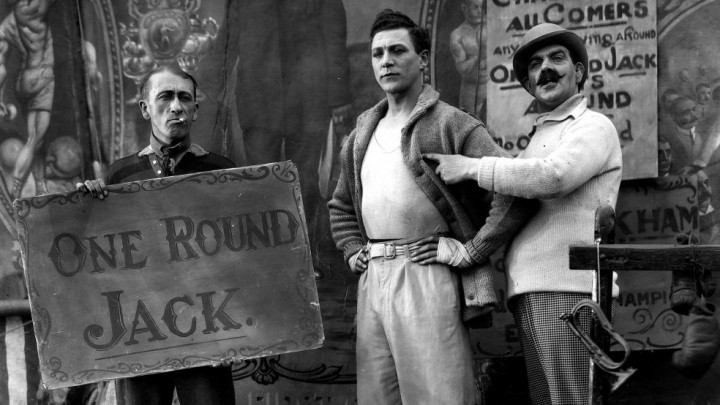
As a relative newbie to these early works of Hitchcock’s, and silent film in general, my knowledge of the release history of many of these films isn’t something I’m familiar with. The version I saw of this film appeared to be in a horrendously deteriorated state, and nowhere near the quality one might find after a restoration – something this film has undergone in recent times – and the orchestral score lacked nuance: the soundtrack accompanying this film was merely a series of classical pieces, from Beethoven to what appeared to be Dvorak, and lacked even the slightest sense of complementing that which unfolded on the screen. So I muted the soundtrack, and watched the film in silence (not something I’m used to) and found it to be a solid improvement. Not that The Ring could be held in the highest regard, for it isn’t one of Hitchcock’s most astute or renowned films. Indeed, even in the annals of his silent work, it’s probably a mid-rung feature, and that’s being generous. These days, scholars are probably the most valued audiences for this film, in that they can understand the more technical aspects of Hitch’s camerawork and framing, and his use of editing to sell the story over spectacle.
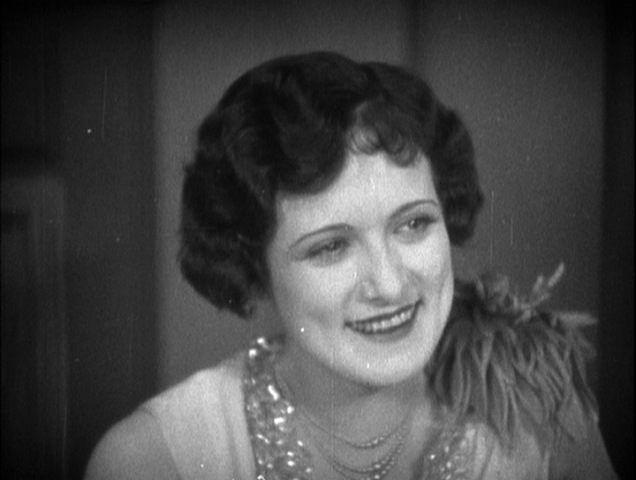
It’s a shame, because as a work of art, The Ring is rather spectacular. Okay, it’s not a blockbuster by any sense, and naturally comes with era-specific caveats to scope, technical ability and limitations, but watching The Ring now some 87 years later, the beginnings of Hitch’s definite style have started to surface. With the love-triangle element, Hitch flails about almost unsure of himself (and honestly, his later works tended to handle romantic affection rather with a clunky imprecision anyway), but when it comes to the “action” of the movie, such as the boxing bout to conclude the film, the movie elevates itself substantially. The cast, from Carl Brisson’s somewhat foppish leading man, to Lillian Hall Davis’ neutering romantic focus, to Ian Hunter’s cocksure third wheel, The Ring’s performance style is indicative of the period, and should be approached as such. Brisson is terrific here, his facial expressions and tall, dashing good looks making for a wonderful male lead, while Davis is all smiles and pouting, overacting surprised and generally behaving badly considering she’s holding the hearts of two men in her hands. The story is a wiffle, a nothing of romantic clap-trappery, and although you’d be forgiven for thinking the film is ostensibly a comedy, the latter half actually becomes a lot more serious in tone (or perhaps that’s just my reading of it!).
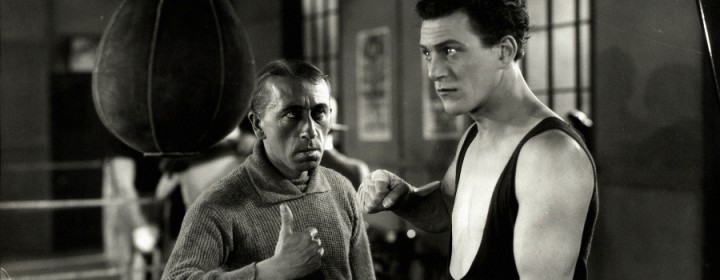
Brisson plays Jack Sander, famed on the carnival circuit for his “one round victories”, while Davis plays his lover Mabel. However, Mabel runs into attractive professional boxer Bob Corby, played by Ian Hunter, and naturally, Mabel is torn between them. While the title of the film might indicate a boxing match (and indeed, the film concludes with one), there’s an element of foxing by Hitchcock as he includes a serpentine bracelet within the narrative, serving as a focal point for the two men to sway the precocious Mabel with their charms. It’s cliched, innocent fun, I guess, but I just wish the film had been more serious; I think Hitch’s best work is in the serious stuff.
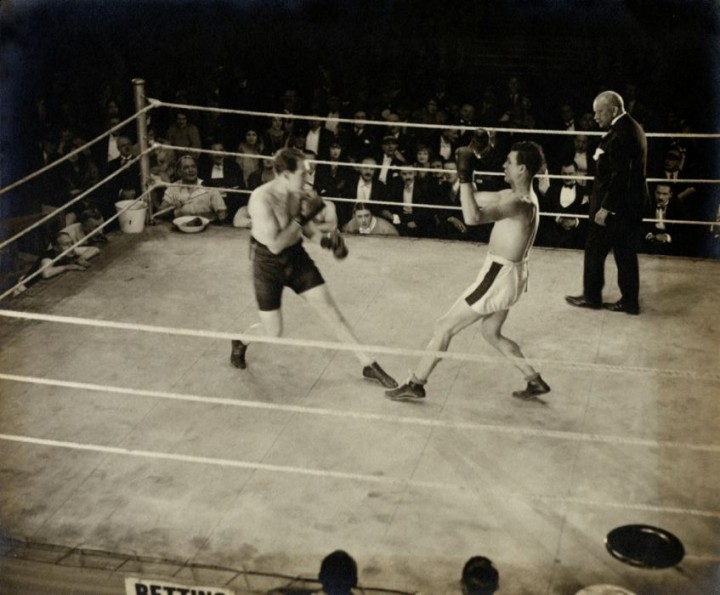
For the fan of Hitch, however, there’s plenty to savor in the technical prowess on display here. Sure, it’s a silent film and as such, comes with a set of limitations compared to more modern works, but you can see Hitch’s style starting to really assert itself throughout, from the low angles, the lighting and use of insert shots (something I hadn’t expected in a film of this vintage, to be honest) to his use of camera in the more robust action moments, it’s all starting to gel here. What makes me scratch my head, however, is that Hitch had already released The Lodger before he got to production on The Ring, and yet The Ring feels rougher around the edges than The Lodger’s assured directorial brilliance. Weird, but there you go. Still, for a brisk 80-odd minutes, The Ring will delight all but the hardest Hitch fans, although casual silent film fans might find a little less to applaud come the closing credits. Yeah, The Ring is a middle-ground film for Hitch, but even that is something worth investing some time in.


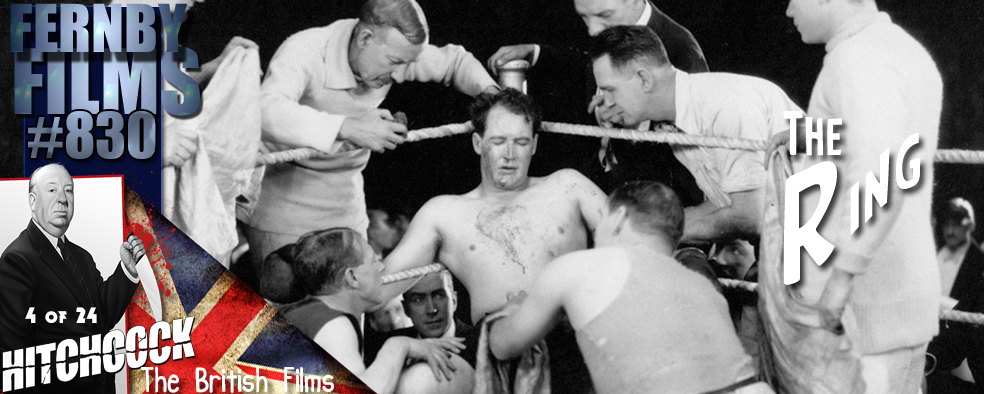

 Hitchmania: The Silent Films of Alfred Hitchcock
Hitchmania: The Silent Films of Alfred Hitchcock

 Early Hitchcock silents provide glimpses of a master in the making
Early Hitchcock silents provide glimpses of a master in the making


 Hitchcock
Hitchcock
Not quite Hitchcock's Raging Bull then!
My recent post Top 10 Horror Films for Adults that Star Children in Lead Roles
Ha ha, no, this most definitely is not that.